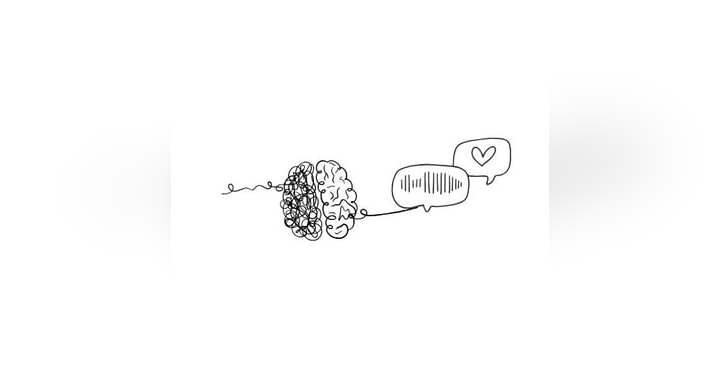Gratitude Journaling: Your Path to Personal Growth and Well-being
The Power of Gratitude Journaling: A Journey Towards Personal Growth and Well-being
Gratitude, a simple yet profound emotion, holds the key to unlocking a world of personal growth and well-being. While we often focus on what's lacking, the practice of gratitude invites us to shift our perspective, recognizing and appreciating the abundance in our lives. Gratitude journaling, a powerful tool for cultivating this mindset, has gained significant traction in recent years, and for good reason. This practice transcends mere appreciation; it's a catalyst for transformation, empowering us to navigate challenges with resilience, foster deeper connections, and unlock our full potential.
To delve deeper into the power of gratitude, check out our latest episode of the Women's Mental Health Podcast, "Embracing Gratitude," here.
Understanding Gratitude Practice: A Foundation for Positive Change
At its core, gratitude practice involves intentionally focusing on the positive aspects of our lives. This could entail reflecting on experiences that brought joy, expressing appreciation for loved ones, or acknowledging our own strengths and accomplishments. By consciously directing our attention towards the good, we rewire our brains to seek out and savor the positive, leading to a more optimistic and fulfilling outlook.
The Many Benefits of Gratitude: Unveiling the Positive Impact
The benefits of gratitude journaling are extensive, reaching far beyond a simple mood boost. Studies have consistently shown that cultivating gratitude can lead to:
Improved Mental Health:
- Reduced symptoms of anxiety and depression
- Enhanced feelings of happiness and well-being
- Increased resilience in the face of stress
Enhanced Relationships:
- Stronger bonds with loved ones
- Improved communication and empathy
- Greater appreciation for the people in our lives
Personal Growth:
- Increased self-awareness and self-compassion
- Improved problem-solving skills
- Greater confidence and motivation
Physical Health:
- Improved sleep quality
- Lower blood pressure
- Reduced risk of chronic diseases
Embracing Gratitude Journaling: A Practical Guide to Cultivating Appreciation
Integrating gratitude journaling into your daily routine can seem daunting at first, but it doesn't have to be complicated. Here's a simple approach to get you started:
- Choose a dedicated time: Set aside a few minutes each day, preferably at a time when you're relaxed and focused. It could be before bed, during your morning routine, or even during your lunch break.
- Grab your journal and pen: You can use a physical notebook or a digital journal app, whatever feels comfortable for you.
- Reflect on your day: Think about three things you're grateful for, big or small. It could be a beautiful sunset, a kind gesture from a friend, or even a delicious meal.
- Write it down: Express your gratitude in writing. Describe the events, feelings, or people you're grateful for in detail.
- Be specific: Instead of writing "I'm grateful for my family," try "I'm grateful for my family's support during my recent job search." The more specific you are, the more impactful your journaling will be.
Gratitude Journaling Techniques: Crafting Your Personal Practice
While the basic principle of gratitude journaling is simple, there are various techniques you can explore to personalize your practice:
The Five Things Gratitude Exercise:
This method involves listing five things you're grateful for each day. It's a great way to start, especially for beginners.
The "Three Good Things" Journal:
This technique focuses on reflecting on three positive experiences from your day, helping you identify and appreciate the small joys.
The "Gratitude Letter" Exercise:
Write a heartfelt letter expressing your gratitude to someone who has impacted your life. This can be a powerful way to strengthen your connection with that person.
The "Gratitude Walk":
Take a mindful walk and pay attention to the beauty and positive aspects of your surroundings. Jot down your observations in your journal.
Connecting Gratitude with Personal Growth: Nurturing Your Inner Self
Gratitude journaling is more than just a positive self-talk exercise; it's a journey of self-discovery and growth. By reflecting on your experiences, you gain insights into your values, priorities, and what truly matters to you. This awareness empowers you to make choices that align with your authentic self, leading to greater fulfillment and purpose.
Gratitude and Mental Health: A Powerful Tool for Wellbeing
The link between gratitude and mental health is undeniable. Practicing gratitude can be a powerful tool for managing anxiety, depression, and other mental health challenges. By shifting your focus to the positive, you reduce rumination (constant thoughts) on negative thoughts and emotions, promoting a more balanced and resilient mindset.
Resources for Gratitude Practices: Embarking on Your Journey
If you're interested in deepening your gratitude practice, numerous resources are available to support you. Here are a few to explore:
- Books: "The Happiness Project" by Gretchen Rubin, "Gratitude Works!" by Robert Emmons
- Apps: Day One, Gratitude 365
- Websites: The Gratitude Project, The Greater Good Science Center
Frequently Asked Questions: Exploring Gratitude Journaling
Q: Is there a best time of day to practice gratitude journaling?
A: The best time to journal is when you're most relaxed and focused. Some people prefer to do it in the morning to set a positive tone for their day, while others find it calming to journal before bed.
Q: How often should I journal?
A: Start with journaling once a day, even if it's just for a few minutes. You can gradually increase the frequency as you become more comfortable with the practice.
Q: What if I can't think of anything to be grateful for?
Don't worry if you're struggling at first. It's okay to start with small things, like a good cup of coffee or a sunny day. As you continue to practice, it will become easier to identify things you're grateful for.
Q: What if I don't have time for gratitude journaling?
Even a few minutes of gratitude practice can make a difference. You can also try incorporating gratitude into your daily routine by simply taking a moment to appreciate the positive aspects of your life throughout the day.
Conclusion
Gratitude journaling is not just a trendy self-care practice; it's a transformative journey towards personal growth and well-being. By shifting our focus from what we lack to what we have, we cultivate a more positive mindset, foster stronger relationships, and enhance our overall quality of life. As you embark on your gratitude journey, remember that consistency and intention are key. Don't be afraid to experiment with different techniques and find what works best for you. Embrace the journey, and watch as gratitude unlocks a world of possibilities within you.
To delve deeper into the power of gratitude, check out our latest episode of the Women's Mental Health Podcast, "Embracing Gratitude: Your Power Tool Over Comparison," here.














